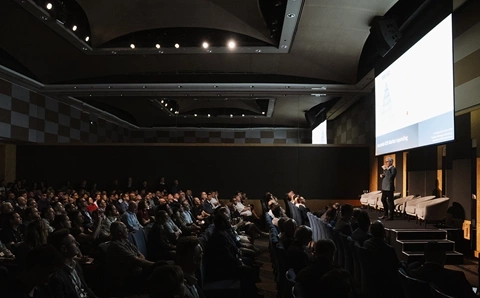But such comments are like a red rag to a bull for Dr Paul Campbell, director of Queensland-based multimedia developer Icemedia and head of industry lobby group Software Queensland, who views the situation for local companies as deplorable.
Campbell's main concern for Australian developers is the re-emergence of the 'total solutions' approach to software procurement, despite its being responsible for such spectacular failures as the South Australian Government's EDS contract, which hurt many local companies in that state.
The 'political memory' in Queensland is especially worrying, Campbell says, with Premier Beattie recently stating on public radio that local technology companies are of a lower standard than their multinational rivals.
'There is a disconnect between the rhetoric of the 'Smart State' as espoused by Beattie and the actions of government purchasing departments,' Campbell says.
Software Queensland has tried unsuccessfully for the past two months to meet with Premier Beattie to discuss his gaffe, and it hopes to set the record straight in the interests of the industry, which in Queensland accounts for a about 13.5 percent of the state's entire work force.
Another issue Software Queensland hopes to raise with the premier is the growing trend amongst multinational software companies to outsource development to cheaper workers in India.
'This is something that would never happen with the US Government,' Campbell says.
Formed in the early 1990s, Icemedia has had much success marketing its products for developing intelligent, interactive websites to organisations such as the Department of Defence and Telstra, while also making strong inroads into the lucrative pharmaceutical industry. Yet Campbell maintains that this has been despite what is essentially an unfriendly climate for local developers.
'We've certainly shown that we can survive in a tough climate but that doesn't mean that we've been successful,' he says. 'We've succeeded despite the lack of support in Queensland.'
Roger Bushell, managing director of Vital Software, which markets the ContactTracker product, knows how tough it is for smaller software companies in Australia.
'If you can get to $1 million in sales as an Australian software company, you've done a pretty good job,' he says.
Having pitted itself against some of the biggest players in the software business, the company has succeed in netting some of Australia's largest companies, including ANZ Bank, Smorgan Steel and Telstra, and is not doing too bad overseas either.
But while for most companies the US remains the Holy Grail, Bushell has decided to give it a miss all together, instead focusing his energies on Europe, where Vital currently has a small presence in the UK and is in the early stages of forging partnerships in Italy and Germany. Bushell says that while Asia promises a lot of new opportunities, the market is yet to reach a sufficient level of maturity to justify investing in the region.
He says his reasons for side-stepping the US though are essentially 'cultural', citing an experience back in the 1990s when the company launched ContactTracker, naturally enough, with a photo of an Aboriginal 'tracker' on the front cover. The company later received the unenviable accolade of the 'Badvertising' award, given to the worst-taste ads in America. 'There really is a different mind-set altogether in the US,' he says.
One of the things that Bushell says he tries to stay mindful of in the software business is that the small players pay more attention to the larger ones, and that sometimes this can be an advantage. 'We're more aware of them than they are of us but I've beaten Microsoft to some serious deals,' he says.
Mid-market ERP developer eOne recently cracked the big time in the form of a joint development and licensing agreement with Microsoft, again for the Great Plains business suite.
For founder, director and former merchant banker Simon Butler, the formula for success was quite straightforward: identify exactly where and how to find the best returns. 'When I started this I basically says that I wanted to develop something that would sell in the US,' he says.
Which he duly did. Punting that Microsoft would buy Great Plains, he focused all his energies in finding areas of the product suite that were lacking or underdeveloped. This led eOne to develop an accounting component that Microsoft has licensed from the company in return for 'nice licence revenue', and, naturally, huge kudos. The company has also managed to retain its IP.
Also in partnership with Microsoft, eOne is now developing tools to help Great Plains users create customised applications. Further down the track, eOne expects to license a tool that will enable Great Plains users to develop their own tools and automatically convert them into web-based forms.
Looking at companies like eOne, PA, Technology One, MYOB and genuine global successes like mining solutions group Mincom, it is obvious that local software companies can grow into big fish. However, at the moment there remains a clear divide between those with the scale and backing to become major concerns in this highly competitive market and those still labouring under our own cultural cringe.
However, if there is one thing very few local software companies lack, it is the experience of trying.




.jpg&h=142&w=230&c=1&s=1)

_(21).jpg&h=142&w=230&c=1&s=1)

.png&h=142&w=230&c=1&s=1)



.jpg&w=100&c=1&s=0)
_(8).jpg&w=100&c=1&s=0)









